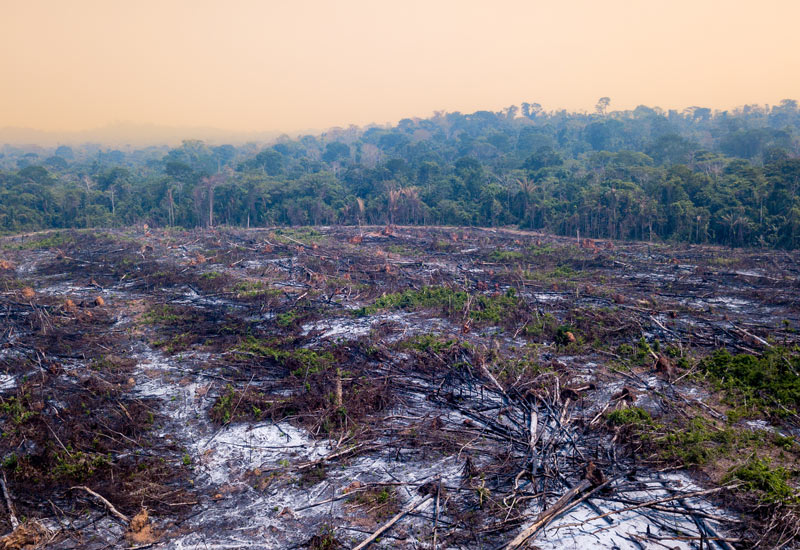Get the right experience for you. Please select your location and investor type.
IMPORTANT NEWS: Transition of investment management responsibilities
First Sentier Group, the global asset management organisation, has announced a strategic transition of Stewart Investors' investment management responsibilities to its affiliate investment team, FSSA Investment Managers, effective Friday, 14 November close of business EST.

Emerging market leaders: forged through adversity
Consider investing in emerging markets and you’ll be steered towards a checklist of potential risks to your capital: political instability, currency risk, market volatility. Those warnings are there for good reason. Equally, the impact that politicians in the developed world have had on financial markets through the first half of 2025 suggests those risks are no longer confined to emerging markets; some G7 economies appear to have more in common with the developing world than they did a year ago.
Stewart Investors have been investing in emerging market companies since 1988. Over that time, we have grown accustomed to investing amid risk and uncertainty. We have evolved an approach to investing that is acutely aware of the risk of capital loss, one that focuses on the long term and guides us towards companies whose cultures and financial resilience equip them to survive episodes of economic and political turbulence. What changes, then, have we made to our portfolios in response to this year’s tariff-inspired volatility? And what do the companies we invest in have to teach their developed-market peers about resilience in times of economic and political turbulence?
What has changed: increasing our focus on the beneficiaries of domestic demand
Few asset managers have a convincing record of getting macro calls right. And, as recent weeks have shown, tariffs can change in the time it takes to call a press conference. Trying to predict where tariffs will be next year, next quarter or even next week is a futile exercise. But that doesn’t mean we should simply ignore the big picture. It may be that we are seeing a shift in the way investors perceive US Treasuries and the dollar. That would represent a fundamental change in the architecture of the financial system to which we need to respond.
Historically, Stewart Investors’ emerging-market strategies have had a significant level of exposure to companies who earn a significant proportion of their revenue in US dollars. In previous ‘risk off’ episodes, the dollar tended to rally, so our holdings’ dollar earnings gave them a measure of downside protection: a shock absorber. That emphatically wasn’t the case in April. This time, when risk assets fell, so did the dollar. In the short term, that was unhelpful: we saw material weakness in the share prices of our holdings with dollar-denominated earnings, such as Indian IT service companies. On this occasion, the parts of our portfolio that might have been expected to be defensive proved not to be. Meanwhile, banks – traditionally pro-cyclical, ‘risk on’ assets – performed well.
" Tariffs can change in the time it takes to call a press conference. Trying to predict where tariffs will be next year, next quarter or even next week is a futile exercise."
That’s an important change and it may have provided a preview of a new era of waning belief in US exceptionalism and growing doubts about US fiscal sustainability. If the dollar is no longer a safe-haven asset, then our view of what is ‘defensive’ will need to change. It may be that, thanks to President Trump’s Liberation Day, domestically focused businesses in economies that would be helped by a combination of lower interest rates, a weaker dollar and lower oil prices – such as India, Indonesia and the Philippines – have become more attractive. Over the year to date, the Stewart Investors Global Emerging Market Leaders strategy has initiated holdings in two domestically focused companies:
Alfamart
Alfamart is Indonesia’s second-biggest chain of convenience stores, with over 20,000 outlets1. It plans to roll out new stores across the country over the next decade, particularly on some of the archipelago’s outer islands. This gives it a clear path to growth that depends less on President Trump’s tariffs and more on how well its management team can execute on the opportunity before them.
BDO Unibank
BDO Unibank is the largest bank in the Philippines, only 56% of whose population is currently active in the formal banking sector2. As with Alfamart, the future depends not on how well it can navigate global tariffs but on its ability to bring banking services to the rest of the population – around 50 million potential customers – by opening new branches and through its digital offering.
What hasn’t changed: investing in resilient businesses
Some of the most interesting and resilient companies in emerging markets have been built amid political upheaval and economic adversity. The managers of these businesses often have first-hand experience of:
- Hyperinflation.
- Populism and military coups.
- Currency devaluations.
- Commodity booms (and busts).
The best emerging-market companies have evolved business models and cultures that allow them to survive and grow amid the type of uncertainty that has visited developed economies this year. If the world is shifting to a new regime of increased volatility in inflation and currency markets, it could play to the strengths of companies for whom these things are the norm. One example of a company that has encountered all of these disruptions in its home market over the decades since its founding is Brazilian company WEG.
Want to know more?
WEG - an example of resilience
WEG’s products include generators, turbines, transformers, control panels, charging stations for electric cars and battery packs for electric buses. Founded in the Brazilian state of Santa Catarina in 1961, the company’s name is built from its three founders’ first initials – Werner Ricordo Voigt (an electrician), Eggon João da Silva (an accountant) and Geraldo Werninghaus (a mechanic). Their descendants retain significant ownership stakes today. Over the decades that followed WEG’s founding, Brazil witnessed a military coup, a military dictatorship, rapid growth, hyperinflation, economic ‘shock therapy’ and a series of political leaders facing impeachment. Throughout this, WEG grew patiently, led by a succession of long-tenured executives: 2024 saw it appointing just its fourth chief executive in its 60-year history.
Timeline of WEG and Brazil
Thanks to their experiences over recent decades, WEG’s owners and managers appear to be acutely aware of the risk of currency volatility. So they have taken care to diversify geographically and to build vertically integrated supply chains. This served it well in the disruptions caused by the pandemic, when it had enough control over its supply chain not run out of components. It may do the same in today’s de-globalising economy. (If WEG’s vertical integration looks prescient, the company is humble enough to concede that it is a matter of luck and that they might not have built the company in the same way had been building it from scratch).
Today, WEG has customers in 135 countries3, with local operations supplying key growth markets such as China, the US and Mexico. Tariffs, meanwhile, are nothing new: Brazil has historically placed high tariffs on imports such as cars, electronics and textiles. WEG’s response to this year’s turmoil has been typically pragmatic: "Our strategy of diversifying products and solutions and global presence allows us to take advantage of opportunities in the various markets where we operate and mitigate risks in times of market fluctuation … So far, WEG has not changed anything in the strategic plan because we always think about the long term."4
"So far, WEG has not changed anything in the strategic plan because we always think about the long term."
The world is becoming structurally more volatile, less certain, and riskier. Rather than attempting to manage those risks by trying to anticipate the whims of politicians, we believe there are other – better – strategies investors can adopt. Our focus is on finding companies that understand the world is inherently risky and who – in the way build their franchises, in the cultures they foster and in the way they manage their balance sheets – attempt to anticipate and mitigate those risks. It is the best of these companies, the leaders, that will continue to form the core of our portfolios.
June 2025
Important Information
This material is a financial promotion / marketing communication but is for general information purposes only. It does not constitute investment or financial advice and does not take into account any specific investment objectives, financial situation or needs. This is not an offer to provide asset management services, is not a recommendation or an offer or solicitation to buy, hold or sell any security or to execute any agreement for portfolio management or investment advisory services and this material has not been prepared in connection with any such offer. Before making any investment decision you should conduct your own due diligence and consider your individual investment needs, objectives and financial situation and read the relevant offering documents for details including the risk factors disclosure.
Any person who acts upon, or changes their investment position in reliance on, the information contained in these materials does so entirely at their own risk.
We have taken reasonable care to ensure that this material is accurate, current, and complete and fit for its intended purpose and audience as at the date of publication. No assurance is given or liability accepted regarding the accuracy, validity or completeness of this material.
To the extent this material contains any expression of opinion or forward-looking statements, such opinions and statements are based on assumptions, matters and sources believed to be true and reliable at the time of publication only. This material reflects the views of the individual writers only. Those views may change, may not prove to be valid and may not reflect the views of everyone at First Sentier Group.
Past performance is not indicative of future performance. All investment involves risks and the value of investments and the income from them may go down as well as up and you may not get back your original investment. Actual outcomes or results may differ materially from those discussed. Readers must not place undue reliance on forward-looking statements as there is no certainty that conditions current at the time of publication will continue.
References to specific securities (if any) are included for the purpose of illustration only and should not be construed as a recommendation to buy or sell the same. Any securities referenced may or may not form part of the holdings of First Sentier Group portfolios at a certain point in time, and the holdings may change over time.
References to comparative benchmarks or indices (if any) are for illustrative and comparison purposes only, may not be available for direct investment, are unmanaged, assume reinvestment of income, and have limitations when used for comparison or other purposes because they may have volatility, credit, or other material characteristics (such as number and types of securities) that are different from the funds managed by First Sentier Group.
Selling restrictions
Not all First Sentier Group products are available in all jurisdictions.
This material is neither directed at nor intended to be accessed by persons resident in, or citizens of any country, or types or categories of individual where to allow such access would be unlawful or where it would require any registration, filing, application for any licence or approval or other steps to be taken by First Sentier Group in order to comply with local laws or regulatory requirements in such country.
About First Sentier Group
References to ‘we’, ‘us’ or ‘our’ are references to First Sentier Group, a global asset management business which is ultimately owned by Mitsubishi UFJ Financial Group (MUFG). Certain of our investment teams operate under the trading names AlbaCore Capital Group, First Sentier Investors, FSSA Investment Managers, Stewart Investors and RQI Investors all of which are part of the First Sentier Group. RQI branded strategies, investment products and services are not available in Germany.
This material may not be copied or reproduced in whole or in part, and in any form or by any means circulated without the prior written consent of First Sentier Group.
We communicate and conduct business through different legal entities in different locations. This material is communicated in:
- Australia and New Zealand by First Sentier Investors (Australia) IM Ltd, authorised and regulated in Australia by the Australian Securities and Investments Commission (AFSL 289017; ABN 89 114 194311)
- European Economic Area by First Sentier Investors (Ireland) Limited, authorised and regulated in
- Ireland by the Central Bank of Ireland (CBI reg no. C182306; reg office 70 Sir John Rogerson’s Quay, Dublin 2, Ireland; reg company no. 629188)
- Hong Kong by First Sentier Investors (Hong Kong) Limited and has not been reviewed by the Securities & Futures Commission in Hong Kong. First Sentier Group, First Sentier Investors, FSSA Investment Managers, Stewart Investors, RQI Investors and Igneo Infrastructure Partners are the business names of First Sentier Investors (Hong Kong) Limited.
- Singapore by First Sentier Investors (Singapore) (reg company no. 196900420D) and this advertisement or material has not been reviewed by the Monetary Authority of Singapore. First Sentier Group (registration number 53507290B), First Sentier Investors (registration number 53236800B), FSSA Investment Managers (registration number 53314080C), Stewart Investors (registration number 53310114W), RQI Investors (registration number 53472532E) and Igneo Infrastructure Partners (registration number 53447928J) are the business names of First Sentier Investors (Singapore).
- United Kingdom by First Sentier Investors (UK) Funds Limited, authorised and regulated by the Financial Conduct Authority (reg. no. 2294743; reg office Finsbury Circus House, 15 Finsbury Circus, London EC2M 7EB)
- United States by First Sentier Investors (US) LLC, registered with the Securities Exchange Commission (SEC# 801-93167).
- other jurisdictions, where this document may lawfully be issued, by First Sentier Investors International IM Limited, authorised and regulated in the UK by the Financial Conduct Authority (FCA ref no. 122512; Registered office: 23 St. Andrew Square, Edinburgh, EH2 1BB; Company no. SC079063).
To the extent permitted by law, MUFG and its subsidiaries are not liable for any loss or damage as a result of reliance on any statement or information contained in this document. Neither MUFG nor any of its subsidiaries guarantee the performance of any investment products referred to in this document or the repayment of capital. Any investments referred to are not deposits or other liabilities of MUFG or its subsidiaries, and are subject to investment risk, including loss of income and capital invested.
© First Sentier Group


